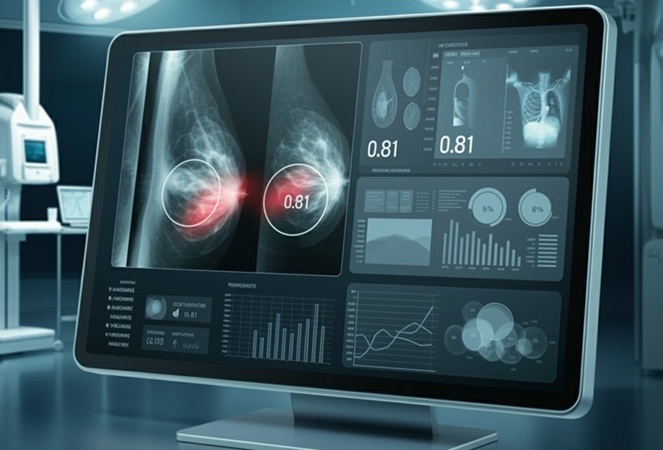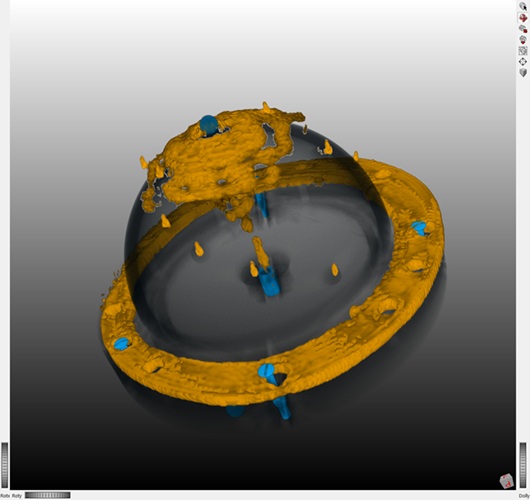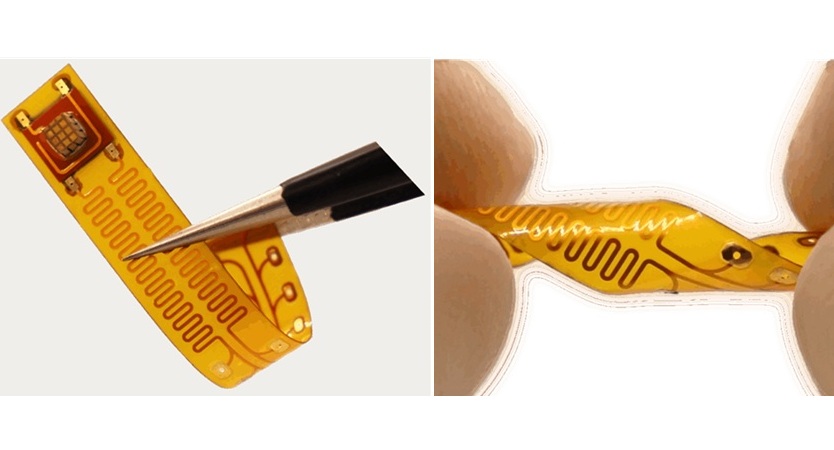Fujifilm’s AI Platform, REiLI Chosen by ASST Vimercate Hospital to Support Operators in Fight Against COVID-19
|
By MedImaging International staff writers Posted on 03 Jul 2020 |
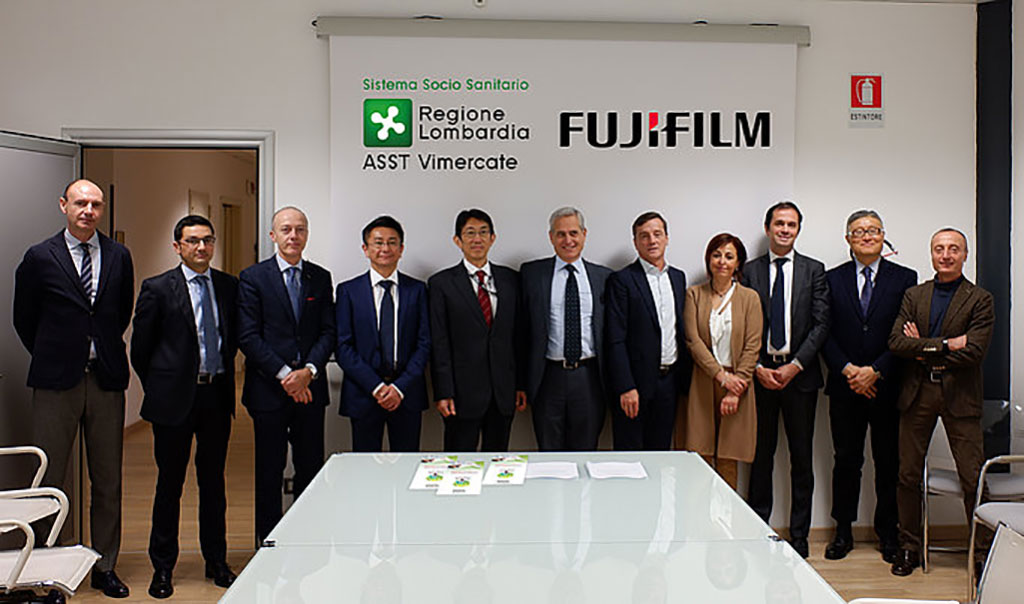
Image: Fujifilm’s AI Platform, REiLI Chosen by ASST Vimercate Hospital to Support Operators in Fight against COVID-19 (Photo courtesy of Fujifilm Medical Systems)
Amidst the COVID-19 emergency, ASST Vimercate Hospital (Vimercate MB, Italy) has chosen and implemented Fujifilm Medical Systems’ (Tokyo, Japan) Artificial Intelligence (AI) platform, REiLI.
REiLI’s processing of CT scans and chest X-rays provides important support for radiologists, offering them an extremely rapid, quantitative and objective assessment of the various zones of the lungs. The chest X-ray, in particular, is the best example of applying the new AI technology, in that it is a quick and simple examination which provides a large amount of useful information for evaluating the presence of the pulmonary parenchymal consolidation caused by the virus. The data obtained from AI does not replace either the molecular diagnoses performed using the nasopharyngeal swab (RT-PCR) or the precious analyses and diagnoses performed by radiologists. The data, however, does provide support in reporting on daily examinations conducted to monitor and study the development of the disease, and constitute a second opinion for the operators. REiLI, Fujifilm’s AI platform, is integrated with the Lunit Insight CXR module for the analysis and detection of the main types of pulmonary disease (nodules, atelectasis, fibrosis, calcifications, cardiomegaly, etc.). In fact, the Lunit Insight CXR3 module has been updated to provide support in specifically identifying the pulmonary parenchymal consolidation caused by the virus.
During the novel coronavirus emergency, operations and workflows in all Italian hospitals were disrupted, which significantly increased workloads. As a consolidated partner of ASST Vimercate, Fujifilm wanted to ensure that its cutting-edge tools were available to reduce the impact caused by the rapid spread of COVID-19 and to deliver a timely response to the spread of the pandemic. In November 2019, ASST Vimercate and Fujifilm signed an agreement to explore new approaches for the treatment of patients, with benefits both the clinical services and healthcare operators. REiLI was installed at ASST Vimercate in just two weeks, by installing a parallel PACS to avoid interrupting the daily workflow. On March 30, REiLI was already operational and had worked on more than 600 images during its first five days. During the emergency, more than 900 positive cases of COVID-19 were found, with an average of 80 chest X-rays per day, allowing for precise and punctual data collection.
“REiLI's support has allowed our radiologists to report examinations with greater speed and efficiency,” said Marcello Intotero, Head of Radiology Structure and Diagnostic Services Department, ASST Vimercate. “In numerical terms, their workloads have not particularly increased, as other causes for non-urgent examinations were limited to avoid an excess flow of patients. This new technology has given great support to the workflow; all images that AI identified as suspected COVID-19 were subjected to processing by the radiologist in a faster and more urgent manner than other images which, instead, the system analyzed as corresponding to a healthy lung.”
“During the health emergency, more than 80 chest X-rays of inpatients and first-aid patients have been analysed each day at the Vimercate Hospital,” said Giovanni Delgrossi, Head of IT Department, ASST Vimercate. “If no priority is set for the examinations to be reported, it may take hours to identify a particular X-ray which could require prompt, immediate action from doctors. In an emergency like the current one, we need to react and act even more quickly.”
“Alternative Intelligence is a new operating concept projected towards collaborative intelligence between machine and man,” said Nicola Bilibio, Clinical Specialist Medical Informatics (CSE) Fujifilm Europe GmbH. “This is a fundamental tool for optimizing the workflow and for screening patients from COVID-19. During the emergency, we promptly made our most advanced technologies available to make our concrete contribution to the crisis.”
REiLI’s processing of CT scans and chest X-rays provides important support for radiologists, offering them an extremely rapid, quantitative and objective assessment of the various zones of the lungs. The chest X-ray, in particular, is the best example of applying the new AI technology, in that it is a quick and simple examination which provides a large amount of useful information for evaluating the presence of the pulmonary parenchymal consolidation caused by the virus. The data obtained from AI does not replace either the molecular diagnoses performed using the nasopharyngeal swab (RT-PCR) or the precious analyses and diagnoses performed by radiologists. The data, however, does provide support in reporting on daily examinations conducted to monitor and study the development of the disease, and constitute a second opinion for the operators. REiLI, Fujifilm’s AI platform, is integrated with the Lunit Insight CXR module for the analysis and detection of the main types of pulmonary disease (nodules, atelectasis, fibrosis, calcifications, cardiomegaly, etc.). In fact, the Lunit Insight CXR3 module has been updated to provide support in specifically identifying the pulmonary parenchymal consolidation caused by the virus.
During the novel coronavirus emergency, operations and workflows in all Italian hospitals were disrupted, which significantly increased workloads. As a consolidated partner of ASST Vimercate, Fujifilm wanted to ensure that its cutting-edge tools were available to reduce the impact caused by the rapid spread of COVID-19 and to deliver a timely response to the spread of the pandemic. In November 2019, ASST Vimercate and Fujifilm signed an agreement to explore new approaches for the treatment of patients, with benefits both the clinical services and healthcare operators. REiLI was installed at ASST Vimercate in just two weeks, by installing a parallel PACS to avoid interrupting the daily workflow. On March 30, REiLI was already operational and had worked on more than 600 images during its first five days. During the emergency, more than 900 positive cases of COVID-19 were found, with an average of 80 chest X-rays per day, allowing for precise and punctual data collection.
“REiLI's support has allowed our radiologists to report examinations with greater speed and efficiency,” said Marcello Intotero, Head of Radiology Structure and Diagnostic Services Department, ASST Vimercate. “In numerical terms, their workloads have not particularly increased, as other causes for non-urgent examinations were limited to avoid an excess flow of patients. This new technology has given great support to the workflow; all images that AI identified as suspected COVID-19 were subjected to processing by the radiologist in a faster and more urgent manner than other images which, instead, the system analyzed as corresponding to a healthy lung.”
“During the health emergency, more than 80 chest X-rays of inpatients and first-aid patients have been analysed each day at the Vimercate Hospital,” said Giovanni Delgrossi, Head of IT Department, ASST Vimercate. “If no priority is set for the examinations to be reported, it may take hours to identify a particular X-ray which could require prompt, immediate action from doctors. In an emergency like the current one, we need to react and act even more quickly.”
“Alternative Intelligence is a new operating concept projected towards collaborative intelligence between machine and man,” said Nicola Bilibio, Clinical Specialist Medical Informatics (CSE) Fujifilm Europe GmbH. “This is a fundamental tool for optimizing the workflow and for screening patients from COVID-19. During the emergency, we promptly made our most advanced technologies available to make our concrete contribution to the crisis.”
Latest Radiography News
- AI Hybrid Strategy Improves Mammogram Interpretation
- AI Technology Predicts Personalized Five-Year Risk of Developing Breast Cancer
- RSNA AI Challenge Models Can Independently Interpret Mammograms
- New Technique Combines X-Ray Imaging and Radar for Safer Cancer Diagnosis
- New AI Tool Helps Doctors Read Chest X‑Rays Better
- Wearable X-Ray Imaging Detecting Fabric to Provide On-The-Go Diagnostic Scanning
- AI Helps Radiologists Spot More Lesions in Mammograms
- AI Detects Fatty Liver Disease from Chest X-Rays
- AI Detects Hidden Heart Disease in Existing CT Chest Scans
- Ultra-Lightweight AI Model Runs Without GPU to Break Barriers in Lung Cancer Diagnosis
- AI Radiology Tool Identifies Life-Threatening Conditions in Milliseconds

- Machine Learning Algorithm Identifies Cardiovascular Risk from Routine Bone Density Scans
- AI Improves Early Detection of Interval Breast Cancers
- World's Largest Class Single Crystal Diamond Radiation Detector Opens New Possibilities for Diagnostic Imaging
- AI-Powered Imaging Technique Shows Promise in Evaluating Patients for PCI
- Higher Chest X-Ray Usage Catches Lung Cancer Earlier and Improves Survival
Channels
Radiography
view channel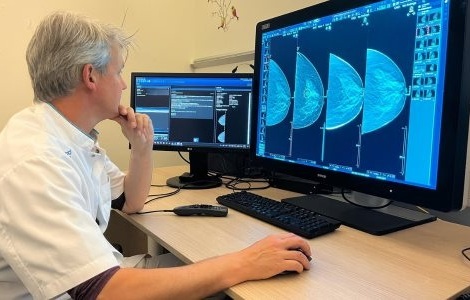
AI Hybrid Strategy Improves Mammogram Interpretation
Breast cancer screening programs rely heavily on radiologists interpreting mammograms, a process that is time-intensive and subject to errors. While artificial intelligence (AI) models have shown strong... Read more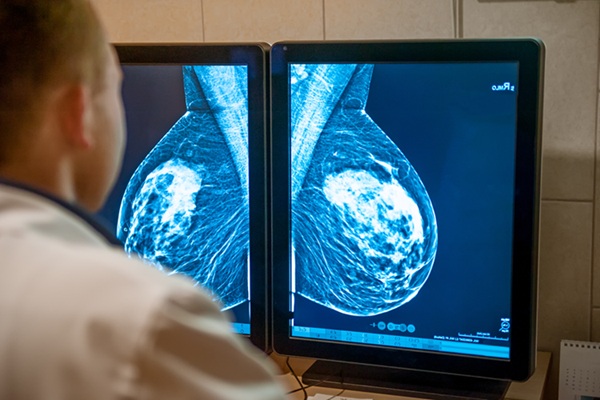
AI Technology Predicts Personalized Five-Year Risk of Developing Breast Cancer
Breast cancer remains one of the most common cancers among women, with about one in eight receiving a diagnosis in their lifetime. Despite widespread use of mammography, about 34% of patients in the U.... Read moreMRI
view channel
AI-Assisted Model Enhances MRI Heart Scans
A cardiac MRI can reveal critical information about the heart’s function and any abnormalities, but traditional scans take 30 to 90 minutes and often suffer from poor image quality due to patient movement.... Read more
AI Model Outperforms Doctors at Identifying Patients Most At-Risk of Cardiac Arrest
Hypertrophic cardiomyopathy is one of the most common inherited heart conditions and a leading cause of sudden cardiac death in young individuals and athletes. While many patients live normal lives, some... Read moreUltrasound
view channel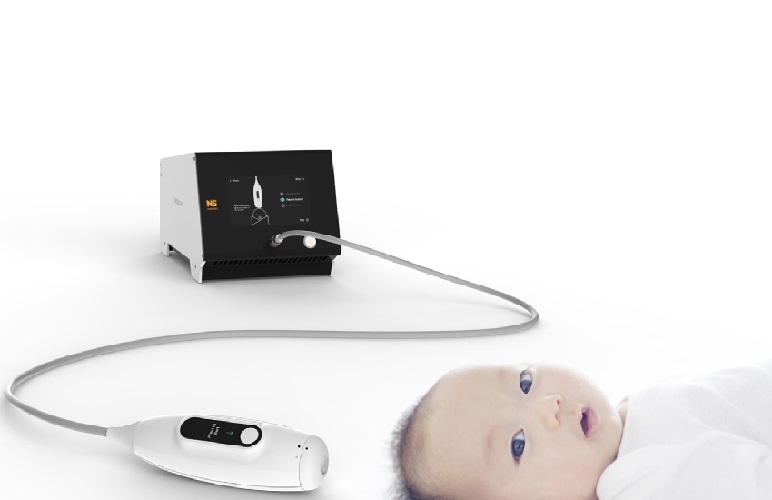
Non-Invasive Ultrasound-Based Tool Accurately Detects Infant Meningitis
Meningitis, an inflammation of the membranes surrounding the brain and spinal cord, can be fatal in infants if not diagnosed and treated early. Even when treated, it may leave lasting damage, such as cognitive... Read more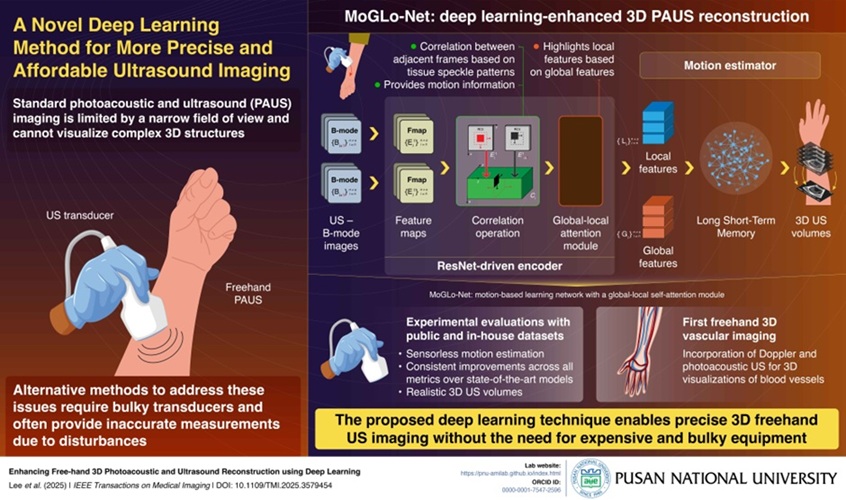
Breakthrough Deep Learning Model Enhances Handheld 3D Medical Imaging
Ultrasound imaging is a vital diagnostic technique used to visualize internal organs and tissues in real time and to guide procedures such as biopsies and injections. When paired with photoacoustic imaging... Read moreNuclear Medicine
view channel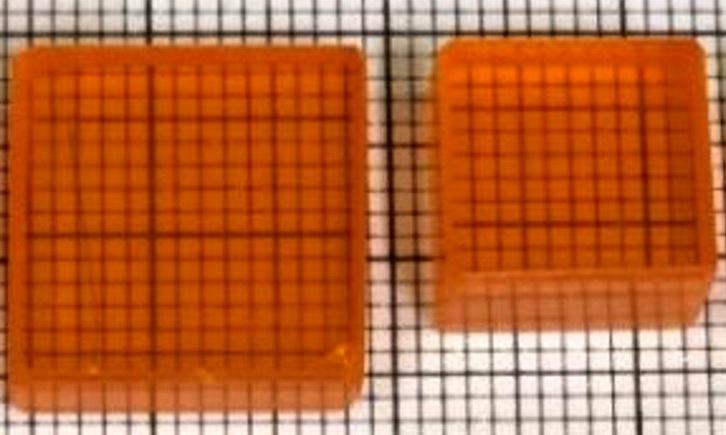
New Camera Sees Inside Human Body for Enhanced Scanning and Diagnosis
Nuclear medicine scans like single-photon emission computed tomography (SPECT) allow doctors to observe heart function, track blood flow, and detect hidden diseases. However, current detectors are either... Read more
Novel Bacteria-Specific PET Imaging Approach Detects Hard-To-Diagnose Lung Infections
Mycobacteroides abscessus is a rapidly growing mycobacteria that primarily affects immunocompromised patients and those with underlying lung diseases, such as cystic fibrosis or chronic obstructive pulmonary... Read moreGeneral/Advanced Imaging
view channel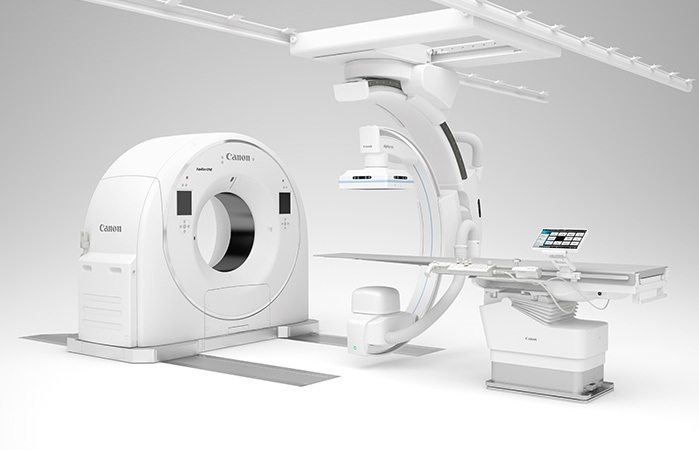
Cutting-Edge Angio-CT Solution Offers New Therapeutic Possibilities
Maintaining accuracy and safety in interventional radiology is a constant challenge, especially as complex procedures require both high precision and efficiency. Traditional setups often involve multiple... Read more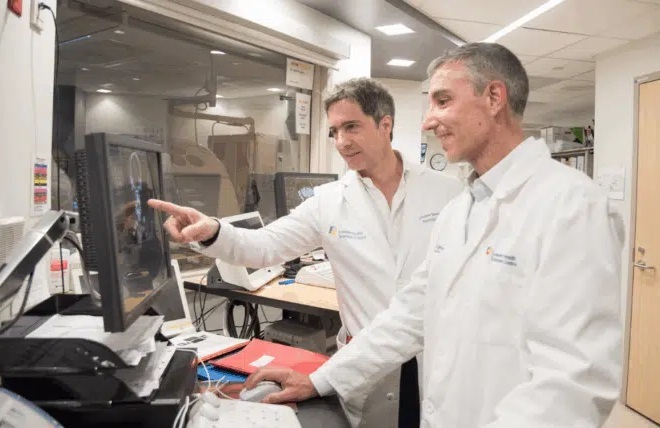
Extending CT Imaging Detects Hidden Blood Clots in Stroke Patients
Strokes caused by blood clots or other mechanisms that obstruct blood flow in the brain account for about 85% of all strokes. Determining where a clot originates is crucial, since it guides safe and effective... Read more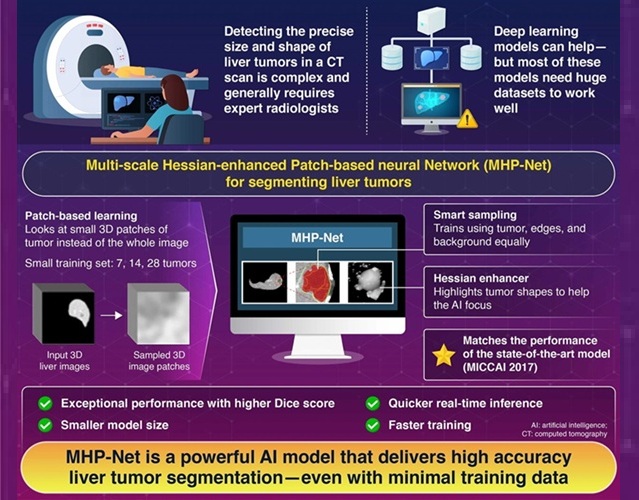
Groundbreaking AI Model Accurately Segments Liver Tumors from CT Scans
Liver cancer is the sixth most common cancer worldwide and a leading cause of cancer-related deaths. Accurate segmentation of liver tumors is critical for diagnosis and therapy, but manual methods by radiologists... Read more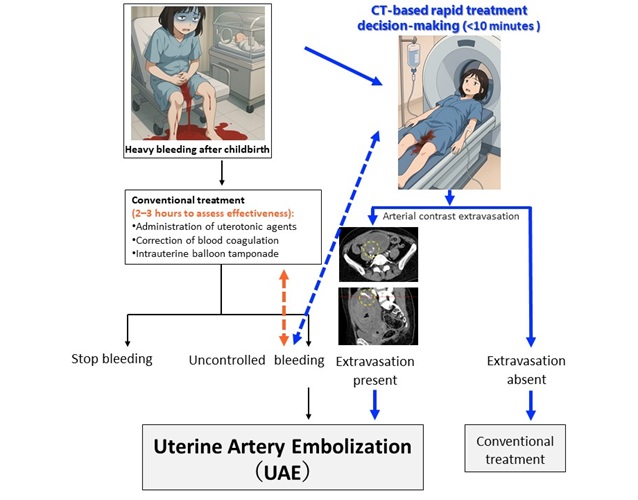
New CT-Based Indicator Helps Predict Life-Threatening Postpartum Bleeding Cases
Postpartum hemorrhage (PPH) is a leading cause of maternal death worldwide. While most cases can be controlled with medications and basic interventions, some become life-threatening and require invasive treatments.... Read moreImaging IT
view channel
New Google Cloud Medical Imaging Suite Makes Imaging Healthcare Data More Accessible
Medical imaging is a critical tool used to diagnose patients, and there are billions of medical images scanned globally each year. Imaging data accounts for about 90% of all healthcare data1 and, until... Read more
Global AI in Medical Diagnostics Market to Be Driven by Demand for Image Recognition in Radiology
The global artificial intelligence (AI) in medical diagnostics market is expanding with early disease detection being one of its key applications and image recognition becoming a compelling consumer proposition... Read moreIndustry News
view channel
GE HealthCare and NVIDIA Collaboration to Reimagine Diagnostic Imaging
GE HealthCare (Chicago, IL, USA) has entered into a collaboration with NVIDIA (Santa Clara, CA, USA), expanding the existing relationship between the two companies to focus on pioneering innovation in... Read more
Patient-Specific 3D-Printed Phantoms Transform CT Imaging
New research has highlighted how anatomically precise, patient-specific 3D-printed phantoms are proving to be scalable, cost-effective, and efficient tools in the development of new CT scan algorithms... Read more
Siemens and Sectra Collaborate on Enhancing Radiology Workflows
Siemens Healthineers (Forchheim, Germany) and Sectra (Linköping, Sweden) have entered into a collaboration aimed at enhancing radiologists' diagnostic capabilities and, in turn, improving patient care... Read more












